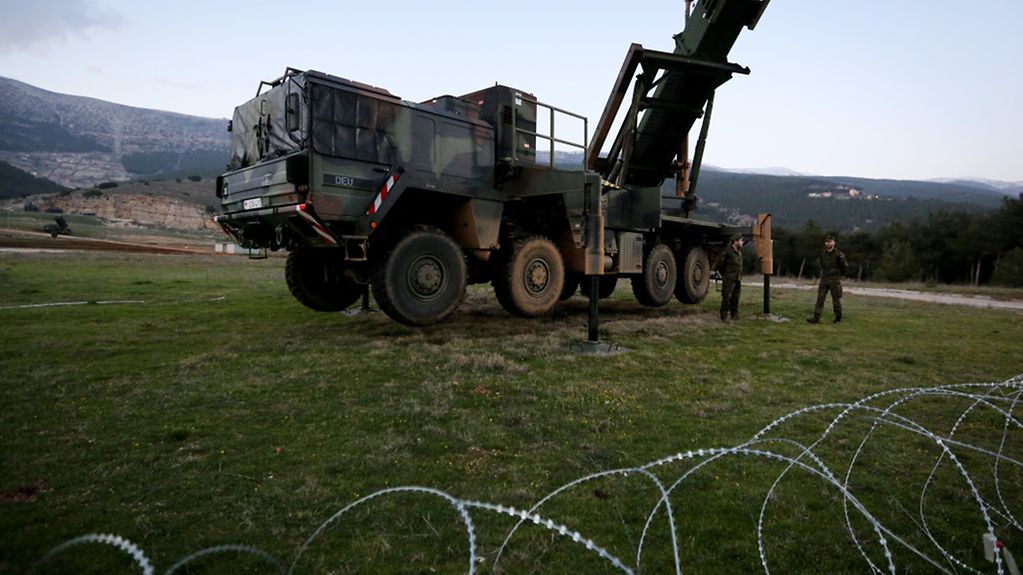Bundeswehr mission Active Fence
German troops are to remain in Turkey to protect Germany’s NATO ally against missile attacks from Syria. Around 250 soldiers with air defence systems are currently involved in the NATO integrated air defence mission. The German Bundestag has now voted to extend the mandate.
2 min reading time

NATO air defence - Operation Active Fence Turkey is an expression of solidarity within the alliance
Photo: picture alliance / dpa
With this vote the German Bundestag has extended the mandate for Operation Active Fence by twelve months, until 31 January 2016. The ceiling on troops will remain at 400. Strengthening the integrated NATO (North Atlantic Treaty Organization) air defence in Turkey is a purely defensive measure.
Germany’s armed forces are acting on the basis of a resolution adopted by the North Atlantic Council on 4 December 2012, in line with the statutes of the North Atlantic Treaty Organization. The Bundeswehr’s involvement in the operation is in line with the system of mutual collective security pursuant to Article 24 (2) of the German Basic Law or constitutions.
Crisis in Syria continues
Turkey is one of the countries in the region worst affected by the conflict in Syria and the fight against the terrorist organisation IS. More than 1.5 million refugees have fled to Turkey to escape the fighting; Turkey is protecting and caring for these refugees.
The country is still facing a potential threat from neighbouring Syria and thus needs the support of NATO.
Attacks on Turkey possible
Although Syria’s chemical weapons have been destroyed and the risk of an attack from Syrian soil is now less acute, it is still unclear whether or not Syria has in fact fully disclosed its chemical weapons arsenal. The German government must then assume a certain remaining risk that chemical weapons could be used.
The situation is compounded by the fact that Syria has the capacity to use its short-range ballistic missiles on a mobile basis. This means that it could target almost anywhere on Turkish territory. Turkey does not have its own capacity to defend itself against ballistic missiles and thus depends on assistance.
In his last regular report NATO’s Supreme Allied Commander deemed the threat to Turkey to be low, but credible. This applies, in particular to stray missiles and possibly to chemical weapons not declared by the Assad regime.
Involvement of other NATO member states
In January 2013, Germany, the Netherlands and the USA each deployed two Patriot units with support staff to Turkey. Other NATO nations have supplied specialists.
The Netherlands did not have the resources to sustain the deployment and withdrew its units in January 2015. The decision was made purely because of the difficulties of keeping the battery and operating personnel operational in Turkey. Spain will now contribute one unit.
Germany is a reliable partner within the alliance
Operation Active Fence Turkey is an expression of reliable solidarity within NATO. The deployment of German, American and Dutch units for the operation is regularly praised by NATO and considered a success.
In his first public speech, new NAO Secretary General Jens Stoltenberg described the deployment of German and American soldiers as a contribution to strengthening Turkey’s defences and collective defence capabilities as a whole.